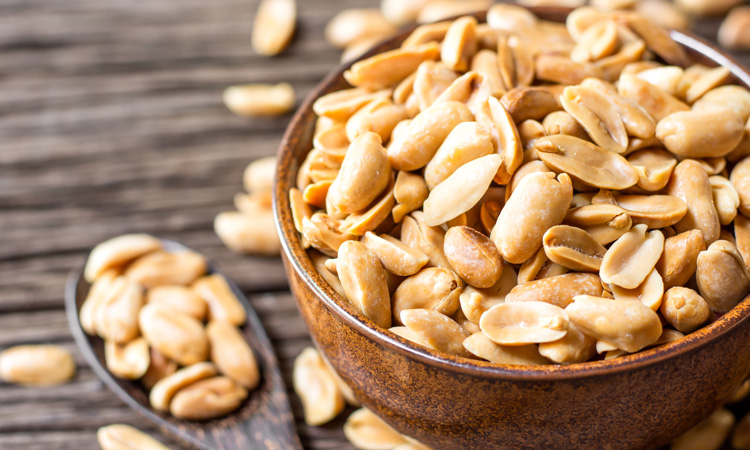Only a third of paediatricians follow full peanut allergy guidelines, study finds
- Like
- Digg
- Del
- Tumblr
- VKontakte
- Buffer
- Love This
- Odnoklassniki
- Meneame
- Blogger
- Amazon
- Yahoo Mail
- Gmail
- AOL
- Newsvine
- HackerNews
- Evernote
- MySpace
- Mail.ru
- Viadeo
- Line
- Comments
- Yummly
- SMS
- Viber
- Telegram
- Subscribe
- Skype
- Facebook Messenger
- Kakao
- LiveJournal
- Yammer
- Edgar
- Fintel
- Mix
- Instapaper
- Copy Link
Posted: 16 July 2020 | Sam Mehmet (New Food) | No comments yet
Surveyed paediatricians cited lack of clinic time, worries about the newness of the 2017 guidelines and parental fear as barriers to full guideline implementation.


While 93 percent of 1,781 US paediatricians surveyed were aware of the national guidelines on peanut allergy prevention in infants, only 30 percent were fully implementing the recommended practices and 64 percent reported partial implementation, according to a study.
New guidelines issued in 2017 called for assessment of peanut allergy risk and introduction of peanut-containing foods in the diet of infants at four to six months of age, however some considered this a reversal from 20 years ago, when the American Academy of Pediatrics recommended that peanuts should be avoided until the child is three years old.
“Our study is the first population-based survey of a large nationwide sample of US paediatricians that characterises the current practices and barriers associated with the 2017 guidelines for preventing peanut allergy through early introduction of peanut-containing food in the infant’s diet,” said lead author Ruchi Gupta, MD, MPH, paediatrician and food allergy researcher at Ann & Robert H. Lurie Children’s Hospital of Chicago, Professor of Pediatrics and Medicine, and Director of the Center for Food Allergy and Asthma Research at Northwestern University Feinberg School of Medicine. “We found that nearly 70 percent of paediatricians reported needing additional guideline training. Barriers to implementation are important to address since paediatricians, beginning with the four to six month well-child visits, can have a vital role in the reduction of peanut allergy.”
Peanut allergy is the most common paediatric food allergy, affecting 2.2 percent of US children. It is the food allergy least frequently outgrown and is often associated with severe reactions. The 2017 guidelines from the National Institute of Allergy and Infectious Diseases (NIAID) are based on evidence that early introduction of peanut-containing food to infants significantly reduces peanut allergy prevalence.
Dr. Gupta and colleagues found that common barriers to guideline implementation included lack of clinic time, conducting in-office supervised feeding of peanut-containing food, performing peanut allergy testing, concerns about newness of the guidelines, and parental fear of allergic reactions. Responding paediatricians also indicated there is a need for handouts for families explaining the guidelines on early peanut introduction to infants, as well as prompts in the electronic health record.
“We need further research on forms of training and types of practice aids that are necessary to increase guideline implementation,” said Dr. Gupta.
Related topics
Related organisations
American Academy of Pediatrics, Ann & Robert H. Lurie Children's Hospital of Chicago, National Institute of Allergy and Infectious Diseases (NIAID), Northwestern University Feinberg School of Medicine








